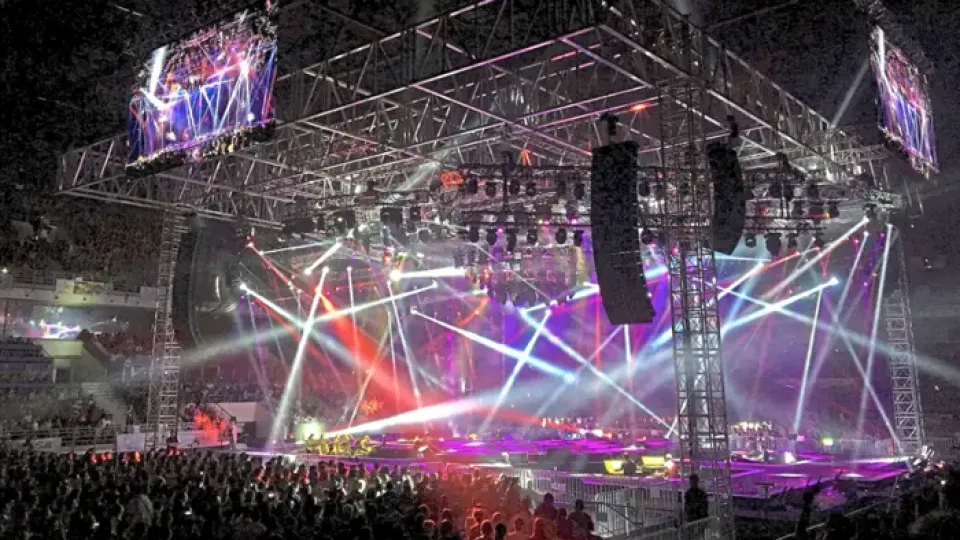September 17, 2025
KUALA LUMPUR – Concerts are expected to inject nearly RM1.7bil into Malaysia’s economy this year, with the country fast emerging as one of the region’s most vibrant destinations for international performances.
The surge is not just reflected in the number of concerts but also in the increasing number of high-wattage stars appearing on Malaysian stages.
Superstar Bollywood playback singer Arijit Singh held a large-scale concert in November last year, drawing a massive regional attendance.
This year, rising K-pop girl group Babymonster visited Malaysia during their first world tour in June, K-pop icon G-Dragon held two sold-out shows here in July, and Cantopop legend Jacky Cheung packed arenas during his August tour, doubling the number of nightly shows from three to six due to strong demand.
Come November, there will be two more major shows. South Korean boy band WINNER will bring their own world tour to Malaysia on Nov 1, while British singer Craig David will thrill his fans with his TS5 Live concert on Nov 10.
According to the Communications Ministry, Malaysia is on track to host about 450 concerts this year, a steep rise from 104 in 2022, 335 (2023) and 408 (last year).
Communications Ministry deputy secretary-general (Strategic Communications and Creative Industry) Nik Kamaruzaman Nik Husin said the government is well-aware of the role of international concerts in spurring economic activity and raising Malaysia’s cultural profile.
“The government aims to position Malaysia as a competitive and culturally vibrant destination.
“Concerts attract large numbers of both local and international attendees, which boosts revenue for the hospitality industry, including hotels, restaurants, transportation and retail businesses,” he told The Star.
He said such events generate benefits across multiple sectors, including employment for event management companies, technical crews, security personnel, vendors and service providers.
Beyond the immediate impact, the influx of visitors also strengthens Malaysia’s image as a vibrant cultural destination.
“Hosting internationally renowned artistes enhances Malaysia’s position on the regional entertainment map, encouraging further investments in the creative economy and infrastructure development such as concert venues and related facilities.
“Overall, we view foreign artiste concerts as a strategic opportunity that drives economic growth, promotes cultural exchange and fosters Malaysia’s development as a dynamic hub for arts and entertainment in South-East Asia,” he said.
The projected RM1.719bil in revenue for 2025 includes both direct and indirect spending such as ticket sales, accommodation, food and beverages, transportation and other related expenses.
Nik Kamaruzaman pointed out that concerts by big names such as Andy Lau and Jay Chou each drew more than 60,000 fans to Kuala Lumpur, with many travelling from abroad and spending heavily in the hospitality and retail sectors.
Similarly, shows by South Korean girl group Blackpink and British rock band Coldplay collectively contributed about RM200mil to the economy, covering hotels, transport and logistics.
“Large-scale concerts also generate substantial tax revenue. The Blackpink concert contributed RM2.7mil, while the Coldplay concert added RM8mil in tax revenue for the government,” he said.
To attract more global superstars, he said the government introduced the Puspal Guideline Reform (GPP 6.0) in May, streamlining approvals for international acts.
The new rules outlined requirements for attire, conduct, promotional activities and scheduling, while also introducing a “kill switch” to halt performances if guidelines are breached.
Approval times for smaller events have been reduced from 14 days to seven, with promoters receiving pre-approval clarity on ticket sales and advertisements.
Another boost comes from the Concert and Event in Malaysia Incentives scheme, which provides rebates of up to RM1.5mil for concerts attracting 15,000 or more attendees. To qualify, promoters must ensure at least 20% of spending is local and that 30% of the crew are Malaysians.
Malaysia’s growing infrastructure is also keeping pace with demand. The newly opened Idea Live Arena in Petaling Jaya can seat 5,000 or accommodate 7,000 in a flexible setup, offering a premier venue for large-scale international shows and strengthening Malaysia’s capacity to host world-class acts.
Industry stakeholders are tackling fan concerns too. The TiketSelamat campaign, launched by the Malaysian Association for Arts, Live Events, Concerts and Festivals, aims to combat scalping and inflated resales through public education, oversight with ticketing platforms and law enforcement, and policy advocacy for fairer ticketing.
Nik Kamaruzaman said the combined initiatives – from streamlined guidelines and financial incentives to modern venues and anti-scalping measures – will enhance Malaysia’s appeal as a safe, accessible and dynamic concert destination.
“Hosting international artistes enhances Malaysia’s global profile as a vibrant cultural and entertainment hub, potentially attracting future tourism and investment,” he said.

